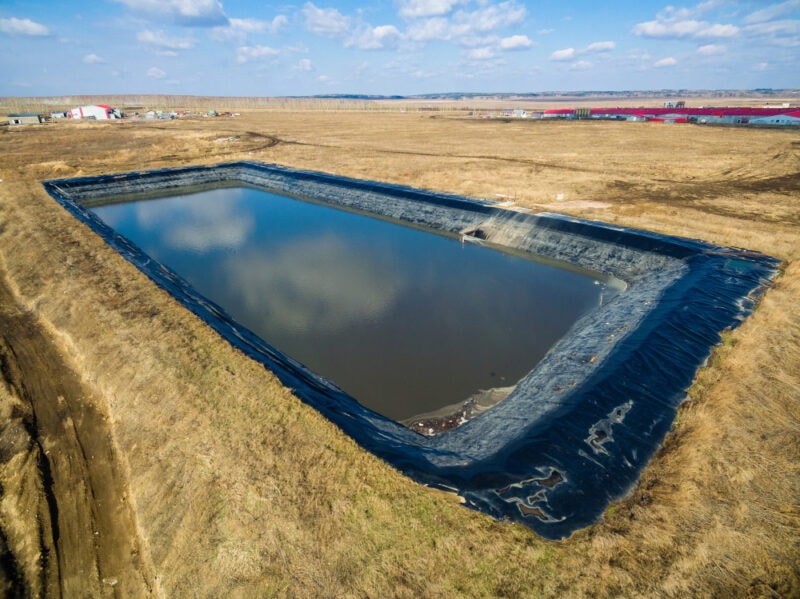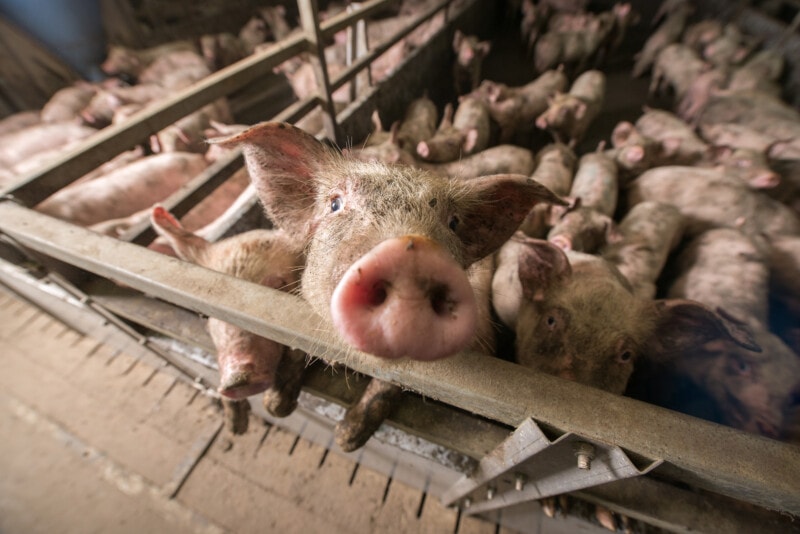When it comes to animal agriculture, even the air around it is toxic. Or so suggests new research from the Proceedings of the National Academy of Sciences.
A new study reports that 17,000 deaths per year are attributable to pollution from farms across the U.S. In total, 15,900 of the deaths are from general food production, and of those, 80% can be attributed to raising animals like cows, pigs, and chickens (as well as the food to feed them).
In Duplin County, N.C. alone (where hog farms are common) around 98 premature deaths per year are attributed to air pollution. 89 of those are directly caused by the resource-intensive process of raising pigs for food.
“The food system has really flown under the radar” as a source of toxic pollution, University of Minnesota professor Jason Hill, the primary author of the study, told the Washington Post. “But what we eat affects not just our own health, but the health of others. We’re showing that directly.”
The pollutants include ammonia (the most deadly), nitrogen oxides, sulfur dioxide and nonmethane volatile organic compounds (NMVOCs). Chronic exposure can lead to cardiovascular disease, cancer, and stroke.

The top 10% of the most damaging farming counties are responsible for 8,400 of the deaths per year, which is 47% of the total. These counties are mainly located in California, Pennsylvania and North Carolina, according to the research. Most of the deaths in the research happened in California’s Central Valley, eastern North Carolina and the Corn Belt of the Upper Midwest — all areas upwind of the pollutants.
As it turns out, animal-based emissions are responsible for more deaths per year than pollution from coal-based power plants. While pollution from power plants, factories and cars/trucks is restricted under the Clean Air Act, farms face very few regulations.
So what can we do about it? The study suggests that dietary shifts toward more plant-based foods could reduce agricultural air quality–related mortality by a whopping 68 to 83% (or 10,700 to 13,100 deaths).
And other studies show that transitioning towards a whole foods, plant-based diet (WFPB) can increase longevity, contribute to weight loss and help fight climate change. That means eating your fruits and veggies is best for both human health and the planet.
- Farm Air Pollution Causes 17,900 Deaths Every Year - May 11, 2021
- Plant-Based Sales Booming; Up 27% to $7 Billion in 2020 - April 8, 2021
- Fruits and Veggies Will Help You Live Longer, Says New Study - March 4, 2021







